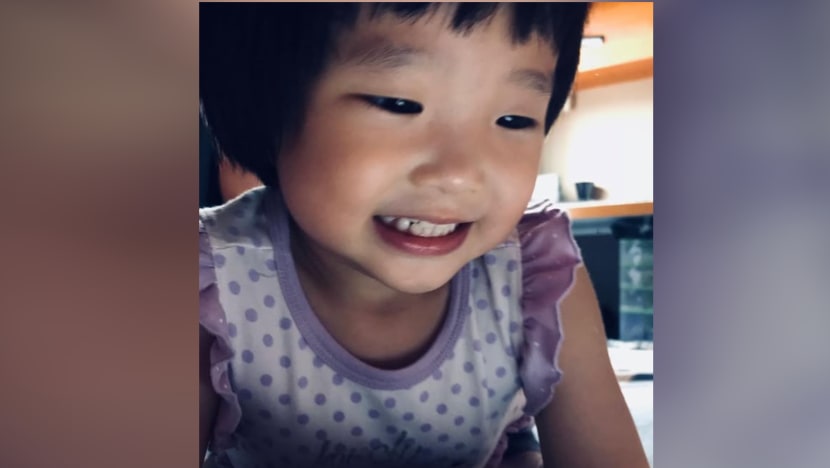Politics
Fatal Abuse of Four-Year-Old Sparks Calls for Systemic Change

The tragic case of four-year-old Megan Khung, who died in February 2020 due to severe abuse, underscores critical failings within Singapore’s child protection system. An independent review panel released a report on October 23, 2023, revealing systemic lapses that allowed Megan’s suffering to continue unchecked. Her death, resulting from months of physical and emotional abuse by her mother and her mother’s boyfriend, highlights a concerning trend where child protection efforts become procedural rather than proactive.
The report details significant missteps by various agencies, including the Early Childhood Development Agency (ECDA) and Beyond Social Services (BSS). Megan’s injuries, which included extensive bruising and signs of malnutrition, were documented nearly a year before her death. Yet, these indicators were largely ignored. The ECDA accepted BSS’s report at face value and failed to conduct a thorough follow-up, merely checking her attendance at preschool.
By the time police intervention occurred, Megan had been missing for over four months. The responding officer characterized the situation as “child discipline with low safety concern,” failing to recognize the gravity of the cumulative evidence of abuse. Such assessments demonstrate a troubling pattern of underestimating risks, where procedural compliance overshadowed professional curiosity and collective accountability.
Systemic Failures Demand Comprehensive Reform
The findings of the review panel resonate deeply within the child protection community, invoking feelings of both relief and grief. While the report offered clarity following an initial government statement that left many questions unanswered, it also prompted introspection regarding the responsibilities held by those in the field. The emotional toll of Megan’s death is felt by professionals who may question their effectiveness and ability to advocate for vulnerable children.
To address these systemic failures, the establishment of an Independent Child Fatality Review Panel is crucial. This panel, proposed to be legislated under the Children and Young Persons Act, would have the authority to review child fatalities comprehensively and identify systemic failures that allow such tragedies to occur. Models from other jurisdictions, such as the United States and Hong Kong, have demonstrated the effectiveness of such panels in uncovering preventable factors in child deaths and enhancing public accountability.
The proposed panel would also ensure transparency by publishing its findings and recommendations, allowing for continuous learning and improvement within the system. This is essential not only for restoring public trust but also for demonstrating a national commitment to child welfare.
Building a Culture of Accountability and Care
While the recommendations from the review panel for Megan’s case are vital, the challenge lies in their implementation. Reform must extend beyond new Standard Operating Procedures (SOPs) to address the underlying culture within the child protection ecosystem. Professionals often face significant challenges, including caseload fatigue and performance pressures, which can impair judgement and responsiveness.
Strengthening the capacity of all individuals who interact with children is essential. This includes childcare workers, educators, and healthcare professionals who must be equipped to recognize the signs of distress and act upon their instincts. A robust child protection system requires a collective commitment to vigilance, where everyone feels empowered to question assessments and advocate for children’s safety.
Authorities must also foster an environment where constructive challenges are welcomed and diverse professional opinions are respected. This change is necessary to cultivate a culture of accountability and care that transcends mere compliance with protocols.
The case of Megan Khung should not be remembered as an isolated tragedy but as a catalyst for profound change. By addressing systemic failures and reinforcing a culture of vigilance, Singapore can strive to create a protective environment that truly prioritizes the safety and well-being of its children. As Cindy Ng-Tay, Director of Melrose Home at the Children’s Aid Society, emphasizes, the aim must be to ensure no child’s death is overlooked, fostering a system that protects the most vulnerable among us.
-

 Lifestyle3 months ago
Lifestyle3 months agoHumanism Camp Engages 250 Youths in Summer Fest 2025
-

 Sports3 months ago
Sports3 months agoDe Minaur Triumphs at Washington Open After Thrilling Comeback
-

 Business4 months ago
Business4 months agoKenvue Dismisses CEO Thibaut Mongon as Strategic Review Advances
-

 Sports3 months ago
Sports3 months agoTupou and Daugunu Join First Nations Squad for Lions Clash
-

 Top Stories4 months ago
Top Stories4 months agoColombian Senator Miguel Uribe Shows Signs of Recovery After Attack
-

 World4 months ago
World4 months agoASEAN Gears Up for Historic Joint Meeting of Foreign and Economic Ministers
-

 Business3 months ago
Business3 months agoOil Prices Surge Following New EU Sanctions on Russia
-

 Health3 months ago
Health3 months agoNew Study Challenges Assumptions About Aging and Inflammation
-

 Entertainment3 months ago
Entertainment3 months agoDetaşe-Sabah Violin Ensemble Captivates at Gabala Music Festival
-

 Entertainment3 months ago
Entertainment3 months agoBaku Metro Extends Hours for Justin Timberlake Concert
-

 Business3 months ago
Business3 months agoU.S. House Approves Stablecoin Bill, Sends to Trump for Signature
-

 Top Stories4 months ago
Top Stories4 months agoRethinking Singapore’s F&B Regulations Amid Business Closures









